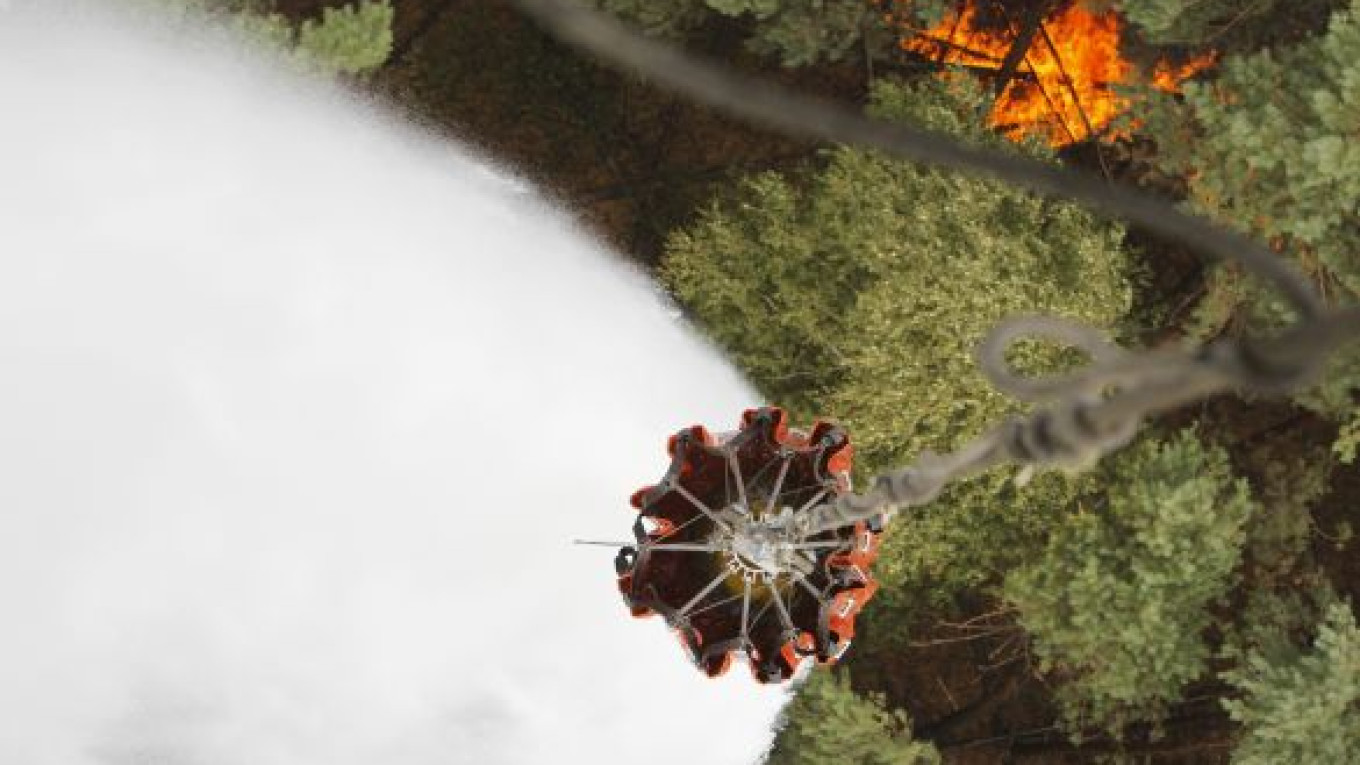As Moscow's sky remained nearly smog-free for a second day, all embassies representing European Union countries resumed their operations in full Wednesday, said the head of the EU’s delegation to Russia, Fernando Valenzuela.
Embassy work was interrupted late last week when Austria, the Czech Republic and Poland, as well as Israel and Canada, began evacuating diplomats because of a thick smog from peat bog and forest fires that blanketed the city. The German Embassy, initially reported to have closed down altogether, said Tuesday that it was working “on a reduced level.”
"All the EU embassies are open and working normally," Valenzuela told reporters.
But he added that some of them had to change their working hours because of the environmental situation in Moscow, so visa applicants are advised to call in advance. He did not elaborate.
Valenzuela also said August is vacation time for many diplomats, so some personnel may be away from the city.
Israel's consular department said in a statement Wednesday that it had fully resumed operations, suspended Monday because of the smog.
Strong winds cleared the Moscow sky of toxic fog on Tuesday and Wednesday, but weather forecasters cautioned that the smog might return as early as Thursday if the wind dies.
"The forest fires have not disappeared," said Roman Vilfand, director of the federal weather bureau, Interfax reported.
About 100 employees of the U.S. Embassy are authorized to leave Moscow for up to 30 days if they want, U.S. State Department spokesman Philip Crowley told reporters in Washington on Wednesday, according to a transcript on the department's web site.
The State Department has advised U.S. citizens to think twice about visiting Moscow because of the smog. The warning expires Sept. 5.
Crowley also said U.S. Ambassador John Beyrle had released $50,000 to assist Russians affected by the fires.
EU members have recommended that their citizens avoid visiting fire-affected regions in Russia, Valenzuela said, adding that each country determines its own policy on the matter.
"In some cases, the information is simply factual; in other cases they are advising not to travel now to the affected areas," he said. "And in other cases they advise not to travel [to Russia], at least for those people with … health conditions."
Belgium, Britain, Denmark, Germany, Italy, Romania and Sweden are among the countries that have advised their citizens to abstain from trips to Moscow and the Moscow region.
The fires were ignited in part by a record heat wave, and the temperature in Moscow hovered around 36 degrees Celsius on Wednesday.
The Emergency Situations Ministry said Wednesday that the total area covered by blazes nationwide had dropped from 1,740 square kilometers to 927 square kilometers.
The death toll from the fires climbed by one to 53 on Wednesday, with another 58 people being treated in hospitals, the ministry said.
A Message from The Moscow Times:
Dear readers,
We are facing unprecedented challenges. Russia's Prosecutor General's Office has designated The Moscow Times as an "undesirable" organization, criminalizing our work and putting our staff at risk of prosecution. This follows our earlier unjust labeling as a "foreign agent."
These actions are direct attempts to silence independent journalism in Russia. The authorities claim our work "discredits the decisions of the Russian leadership." We see things differently: we strive to provide accurate, unbiased reporting on Russia.
We, the journalists of The Moscow Times, refuse to be silenced. But to continue our work, we need your help.
Your support, no matter how small, makes a world of difference. If you can, please support us monthly starting from just $2. It's quick to set up, and every contribution makes a significant impact.
By supporting The Moscow Times, you're defending open, independent journalism in the face of repression. Thank you for standing with us.
Remind me later.


